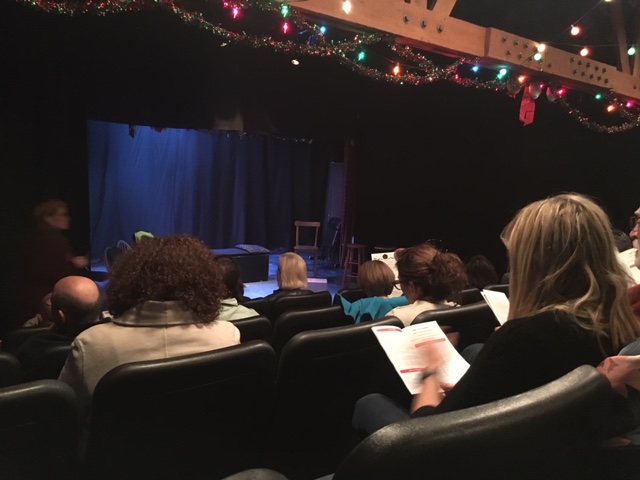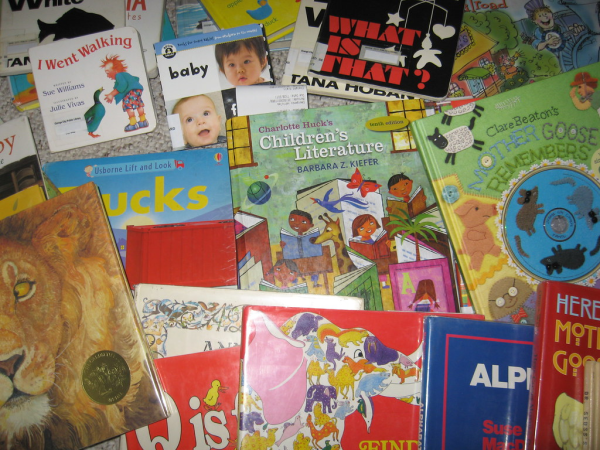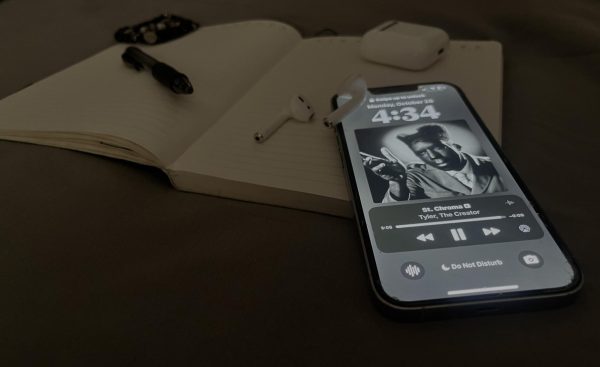QueerWise empowers the young angels of the LGBTQ+ community
The interior of Skylight Theater and the set of AIDS Us.
In the place where LGBTQ+ culture and movements ran rampant during times when they were looked down upon, a group of queer individuals with inspiring stories recently gathered to put on a play. On Dec. 10 at Skylight Theater in Los Feliz, a group called QueerWise had their final performance of director Michael Kearns’ AIDS Us, a play that consists of monologues telling true and fictitious stories of the lives of people with AIDS.
The play was put on in a small theater. The urban setting and disco music fueled the room’s energy on an otherwise cold, Monday night.
As the lights dimmed and the characters took their seats, a clever framing device set the scene for the beginning of the play: two gay men talking about AIDS. They were not speaking in a condescending or hurtful way, but in a way that one character recognized as uninformed. Soon after, the story quickly started, showing the lives of people who had passed away and their struggles with AIDS, acceptance and the hardship of not only being gay in a time where it was not accepted but being ashamed of one’s self because of the stigma of AIDS.
The play was the newest production of AIDS Us. New versions are written every year by the same director with the help of a gradually growing group of individuals. The last rendition was mostly autobiographical, keeping the original stories of those people who had lived with AIDS and turning them into a play.
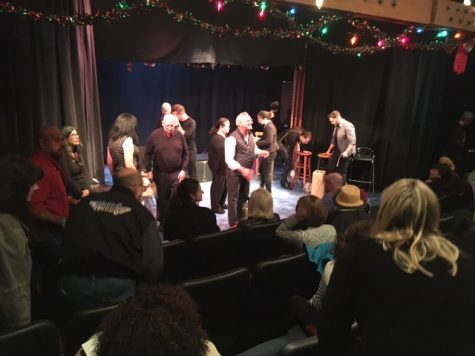
The cast of AIDS Us return to the stage for an after the show Q&A.
“This very personal and intimate experience of writing and performing this work is liberating in a way that I cannot even articulate,” said cast member Ken Pienkos. “The sense of freedom that comes from the honest and authentic storytelling is hard to even measure.” Pienkos expressed that the writing was a way of self acceptance, saying it is “easier to face [himself] in the mirror and accept all of the truth about [his] life.”
This version was a little more fictional. The group would gather a couple of months in advance to research the topic and write on specific prompts that the director gave them. The director would then take those writings and put them into separate narratives that would intertwine to make a play. Their plays will continue to differ in stories and experiences in the following years.
The show serves as a conversation starter, giving friends and family of the LGBTQ+ community the opportunity to talk things out instead of going with what the majority of the public says. “People nowadays are more accepting and understanding,”said Cynthia Ruffin, an LGBTQ+ counselor and audience member. “Conversations have started. People are saying more of ‘this is new, can you help me’ instead of immediately turning to make some rash decision or kick their kid out of the house. These conversations are really good and good for this entire generation.”
The play sends a message to the youth of the LGBTQ+ community: knowledge of the past for improvement in the future. The characters tell the youth to stand up for acceptance and acknowledgement against all obstacles and stigmas, leaving the audience with a fierce battle cry of, “We have to be our own angels.”
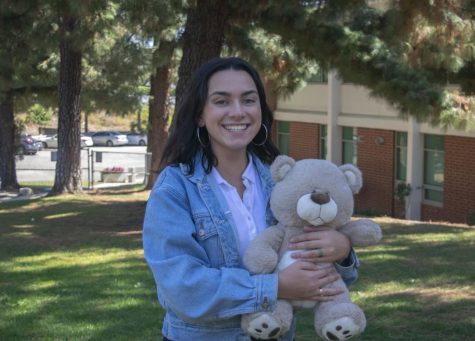
Hobbies/Interests: immigration, healthy lifestyle, dance, art, writing
Spirit animal: Butterfly
Places you want to travel to: Bora Bora, Greece,...



